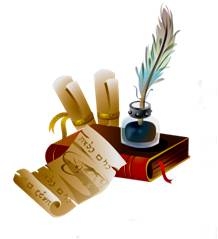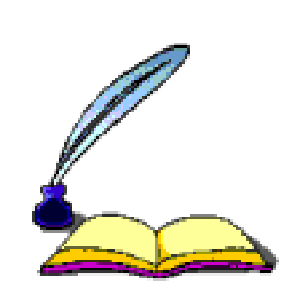Методичні рекомендації. Нормативно-правові документи.

 Конвенція про права дитини (word.doc)
Конвенція про права дитини (word.doc)
 Посадова інструкція вчителя іноземної мови (word.doc)
Посадова інструкція вчителя іноземної мови (word.doc)
 Критерії оцінювання навчальних досягнень (word.doc)
Критерії оцінювання навчальних досягнень (word.doc)
 Національна доктрина розвитку освіти (word.doc)
Національна доктрина розвитку освіти (word.doc)
 Про інноваційну діяльність (word.doc)
Про інноваційну діяльність (word.doc)
 Обсяг і характер домашнього завдання (word.doc)
Обсяг і характер домашнього завдання (word.doc)
 Вимоги до уроку іноземної мови (word.doc)
Вимоги до уроку іноземної мови (word.doc)
 Про вивчення іноземних мов у 2014-15 н.р. (word.doc)
Про вивчення іноземних мов у 2014-15 н.р. (word.doc)
 Психолого-педагогічні особливості вивчення іноземної мови у шостих класах у 2014-2015 навчальному році. (word.doc)
Психолого-педагогічні особливості вивчення іноземної мови у шостих класах у 2014-2015 навчальному році. (word.doc)

Манн, Иванов и Фербер
10 советов от учителя:
1. Урок начинается с интереса ученика к предмету.
2. Прежде, чем объяснить, обрадуйте.
3. После того, как ученики заулыбались, заинтригуйте.
4. После того, как заинтриговали, объясните, зачем это им нужно.
5. Передавайте своё удивление и восхищение тем, что вы объясняете.
6. Запоминается неожиданный пример.
7. Запоминается наглядное и то, что можно использовать.
8. Высший класс – когда ученик хочет переосмыслить вашу информацию и объяснить другим.
9. Хотят учиться не у того, кто хорошо знает предмет, а у того, кто показал, как он нужен ученику.
10. Урок – не когда знающий объясняет незнающим, а когда собравшимся хорошо вместе. А что ещё и полезно – это следствие!
Больше советов - в книге "Искусство обучать" (http://www.mann-ivanov-ferber.ru/…/design_for_how_people_l…/)

Формування навичок самоосвіти та самореалізації школярів на урокаї англійської мови (word.doc)
Формування навичок самоосвіти і самореалізації
Get your students writing: Tips and ideas
 In January we asked over 450 teachers from around the world to vote for the biggest writing challenge they face in their classroom. Since then we’ve dedicated a month to each of the top three challenges with a series of webinars and blog posts from some of Oxford’s top teacher trainers. During our survey we also received some fantastic comments from teachers telling us about other problems they’ve encountered with writing. Join us as we take on 3 extra challenges raised by teachers like you. In this blog Gareth Davies addresses the first of these challenges: ‘My students complain they don’t have any ideas’.
In January we asked over 450 teachers from around the world to vote for the biggest writing challenge they face in their classroom. Since then we’ve dedicated a month to each of the top three challenges with a series of webinars and blog posts from some of Oxford’s top teacher trainers. During our survey we also received some fantastic comments from teachers telling us about other problems they’ve encountered with writing. Join us as we take on 3 extra challenges raised by teachers like you. In this blog Gareth Davies addresses the first of these challenges: ‘My students complain they don’t have any ideas’.
Any writer will tell you about the curse of the blank page. A blank page is the writer’s nightmare, it stares at you, providing evidence to the world that you have not written anything, that your ideas have dried up. If established writers have this problem, it is no wonder that students complain that they don’t have any ideas when asked to write.
Writers often just try to get something down on the paper, anything, to give the impression that the process has started. Different writers use different tricks. For example if I am writing a factual piece like this, I will write My mother said that… on the top of the page. If I am writing fiction, I tend to describe the weather, It was a hot and sticky night… These prompts give the illusion I have started writing and remove the blank page factor. Later when I have completed the piece, I erase my prompt sentence because it is no longer needed but the prompt has got the creative juices flowing. (I did it with this blog, look at the start of this blog post and add in My mother said that…, see it works.) Would this work with your students? Would getting a prompt down on paper help them to create their piece of writing? Try it.
Another useful trick is coming up with questions to answer in the text. If I have a list of questions that need to be answered, then I have a place to start. This can easily be applied to the classroom. For example, if the students have to write about a famous person or a town, then put the name of the person / town on the board and ask them to think of things they would like to know, remember to encourage them to write WH- questions. Write their ideas on the board and now you have a bank of ideas for what to write. Alternatively put your students in groups of 5. Ask each student to write the place / person they want to write about at the top of a piece of paper. Then pass that paper around their group. Each student has to write a different question about that place / person. When the student receives their own paper back, they will have 4 questions to answer in their text. I’ve used the idea of a person or place here, but this can work well with a film or book review or describing a holiday etc.
Follow this up by asking the students to write a short response to only one of the questions. I sometimes suggest this takes the form of a tweet or a text message so it is only 140 characters long. They then swap this with another student or pair who read it and write a reply that includes a question about what they have read. The students now have to rewrite their short text including the answer to that question. Do this again with a different question; soon your students find they have too many ideas for what to write in their final piece. By the way, this also demonstrates to students that writing is not just a school discipline, but it is a means of communication.
Finally when you mark the written work, you can write questions eliciting further information that you would like to know, how much does this cost? Why did she go to Hollywood? etc. This encourages students to see their writing as a first draft that they can improve by adding the extra information. It also shows them that you were interested in the content of their work and not just the mistakes they made. Of course this doesn’t have to be your job. You could ask students to pass their first drafts to another group who read it and ask the questions, thus developing their critical capacity.
In my previous blog post on writing I suggested that as teachers we often throw our students into the deep end with writing tasks. When we ask them to speak they often only have to say one or maybe two sentences that are quickly forgotten but when writing they have to build whole texts that are there in black and white for all to see. I hope these ideas will help you to lead your students from the shallow end, helping them build confidence and gain ideas so they can approach the choppy waters of writing with confidence.